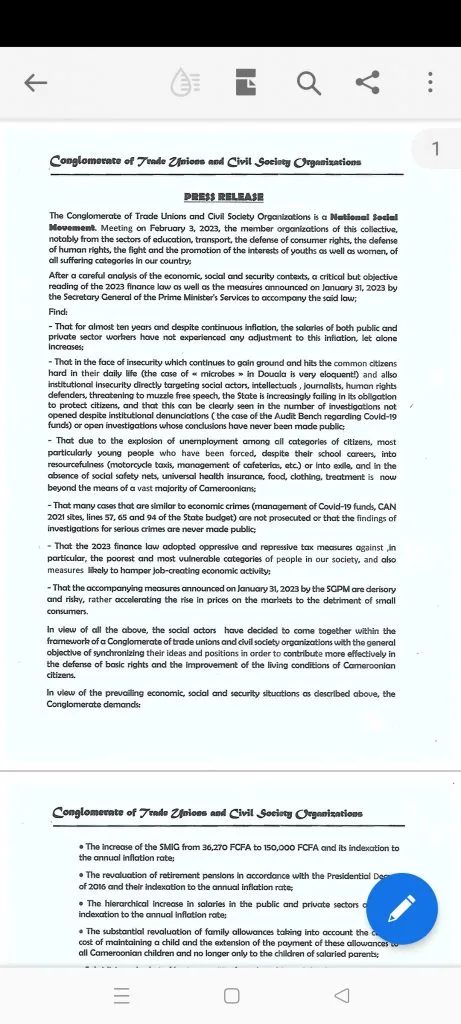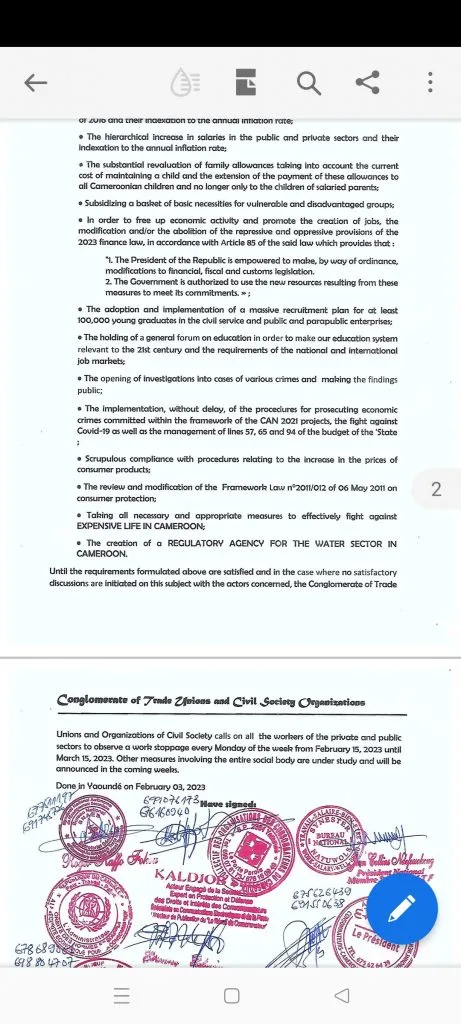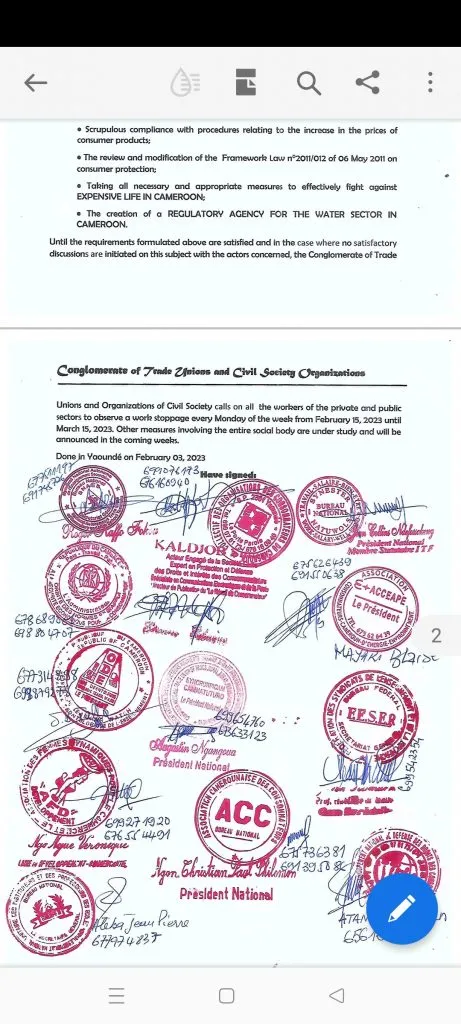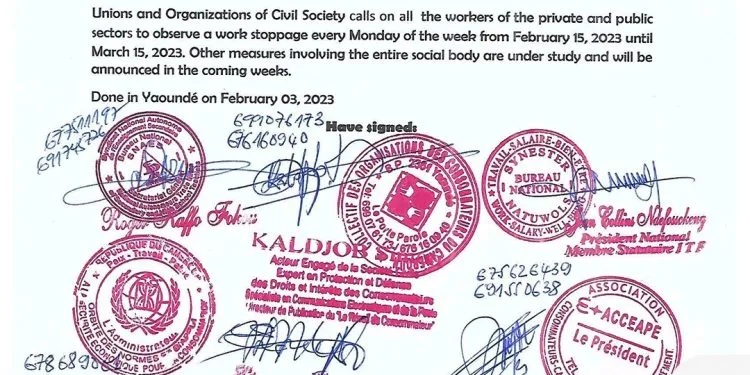By Tata Mbunwe
A conglomerate of trade unions and civil society organisations in Cameroon has tabled several demands to the government threatening to boycott work as from February 15, if they are not met.
Part of the demands made in the February 3 communique include an increase in the minimum wage for private sector workers from 36,270 to 150,000 francs CFA.
The trade unions believe the recent minimum wage increase to 41,000 francs by the government on January 31, accompanied by an increase in fuel prices, is “derisory and risky, rather accelerating the rise in prices on the markets to the detriment of small consumers”.
They are also asking the government to increase family allowances because of the rising cost of living; increase pensions; subsidies the prices of basic necessities for the benefit of vulnerable people; create 100,000 jobs for youths in the country; restructure the education system to meet job market needs, among other demands.
“Until the requirements formulated above are satisfied and in the case where no satisfactory discussions are initiated on this subject with the actors concerned, the Conglomerate of Trade Conglomerate of Trade Unions and Civil Society Organizations Unions and Organizations of Civil Society calls on all the workers of the private and public sectors to observe a work stoppage every Monday of the week from February 15, 2023 until March 15, 2023,” the trade union release states.
State failing in its obligations
The release is not only signed by actors in the economic sector, but also by those in the education, security and human rights sectors.



The actors also raise concerns about rising crime level in the country and government’s increasing inability to honour its own promise of maintaining justice.
They allude to the killing of civil society actors including journalists, human rights defenders and lawyers in the country, the rise of the notorious “microbes” gang in the economic capital Douala, the government’s failure to act in the face of these.
The organisations noted that, “In the face of insecurity, which continues to gain ground and hits the common citizens hard in their daily life (the case of microbes in Douala is very eloquent!) and also institutional insecurity directly targeting social actors, intellectuals, journalists, human rights defenders, threatening to muzzle free speech, the State is increasingly failing in its obligation to protect citizens, and that this can be clearly seen in the number of investigations not opened despite institutional denunciations (the case of the Audit Bench regarding Covid-19 funds) or open investigations whose conclusions have never been made public;
“That due to the explosion of unemployment among all categories of citizens, most particularly young people who have been forced, despite their school careers, into resourcefulness (motorcycle taxis, management of cafeterías, etc.) or into exile, and in the absence of social safety nets, universal health insurance, food, clothing, treatment is now beyond the means of a vast majority of Cameroonians”.
These concerns come amid rising levels of inflation in Cameroon. On January 31, the government announced an increase a nearly 15 percent increase in the minimum wage, and a 5.2 percent increase in civil servant salaries.
This was accompanied by an official increase in fuel prices to 730 francs for premium grade petrol and 720 francs for gas oil.
The measures were received with divided opinions. While State-owned media CRTV reported that people were loading Government for the minimum wage and salary increase, several private media reported that it was a cosmetic measure meant to avert protests in the country.



